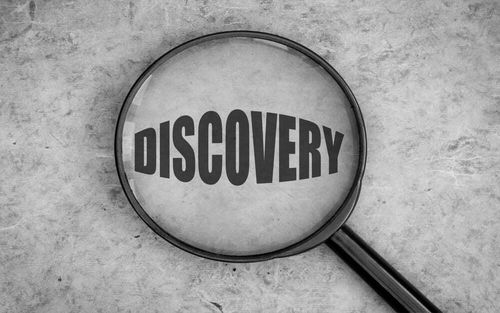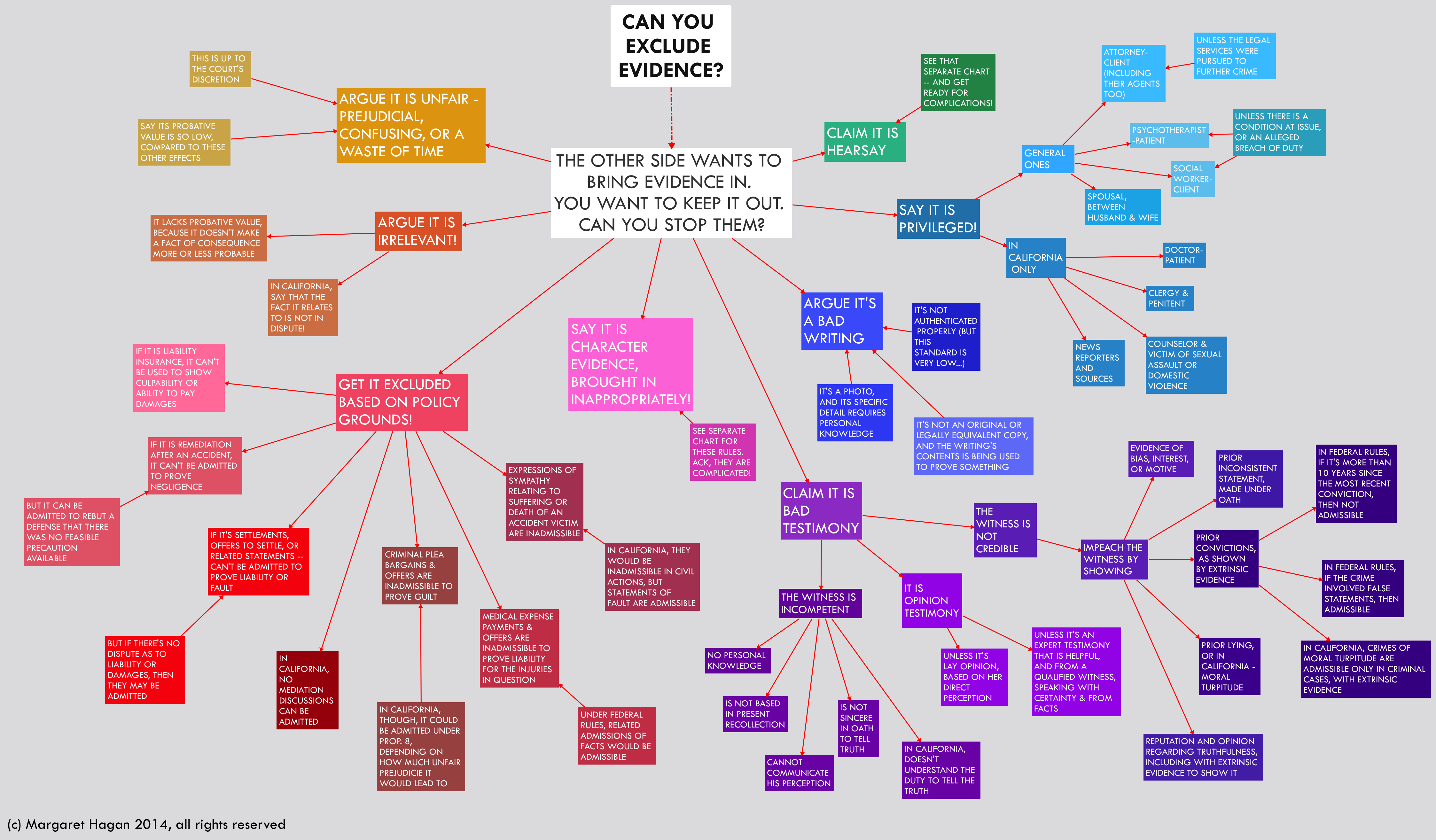The Discovery Process For The Pro se Litigant
Some Good News!
A Pro se effectively conducting discovery will annoy many lawyers. You may well find most cases can be won, dismissed or resolved with thorough discovery. Just visit a local court house on motion days and you will hear lawyers arguing endlessly on discovery issues. Learn how to conduct the various types of discovery and the motions to compel that discovery if your discovery request is not respected. Many lawyers will ignore the first request for discovery from a Pro se litigant. However, once a Pro se litigant files a motion to compel, they usually never have to file a second one.
If a lawyer ignores a second discovery request from a Pro se litigant, a motion to compel AND a motion for sanctions will usually make the lawyer sit up, take notice and start respecting you. Despite the countless stories, many valid, that we hear about courts not being fair or being difficult with Pro se litigants, it is our experience that in the area of properly handled discovery, Pro se’s are pretty much on equal footing with lawyers in the courts.
Anyone can allege anything in initial pleadings. The discovery process is where you start to flush out the real facts. Request for production of documents, written interrogatories, depositions, requests for admissions and stipulations can all be part of discovery.
Formal Discovery is a good resource that will display well on all devices.
More On Discovery is from the free dictionary but, as of 2015, may not display well on all devices.
This link on interrogatories, as of 2015, may not display well on all devices.
We also have our highly accessed page on Deposition Tips! and Secret Canons of Judicial Conduct
CITED http://caught.net/prose/advtt/hbdiscoveryprocess.htm
WHAT IS DISCOVERY IN A CALIFORNIA CRIMINAL PROSECUTION?
Many defendants who are facing criminal charges in California have never been through the court process and are typically overwhelmed and confused about what will happen next.
Anyone who is facing felony charges will often find their freedom is a stake and should know the basics on common terms that will be used throughout their case.
Having a general understanding of criminal court process can help a defendant overcome some the stress frequently associated with facing criminal charges.
A crucial part of this process is known as “discovery.”
In simple terms, “discovery” is the:
- process where evidence is exchanged;
- between the prosecutor and criminal defense attorney;
- prior to court or trial.
The exchange of evidence is a crucial component of a criminal investigation and trial preparation.
It provides relevant information that allow both sides to prepare their case strategy. It helps both the defense and prosecution reach a reasonable decision on how to handle the case.
Even more important for the defendant, discovery is critical for a criminal defense lawyer to make the decision on how to prove their side of the case in court.
California discovery laws are designed to provide a fair criminal justice system that mandate a timely exchange of all information that was gathered by law enforcement and investigators in order to prosecute a criminal case.
To give readers a better understanding of discovery in criminal cases, our Los Angeles criminal defense lawyers are providing an overview below.
WHAT ARE THE TYPES OF DISCOVERY IN CALIFORNIA CRIMINAL CASES?
In a criminal prosecution, discovery can include a wide range of items that are often crucial for your defense, such as:
- all the hard evidence in the case, such as physical evidence;
- exculpatory evidence that could be favorable to your defense;
- witness statements and depositions from police.
A “deposition” is way to find out what type of testimony a witness will say at a trail. It’s transcribed by a court reporter while the prosecutor and attorney are present.
Discovery also includes any lab reports that might include fingerprint or DNA analysis, or any other reports connected to evidence that was analyzed.
Discovery also includes:
- any video or audio evidence that might have been obtained from a law enforcement surveillance operation, such as;
- a phone tap, or video from an alleged drug buy, and
- any crime scene pictures.
Discovery also include police reports from the initial call that started the investigation and any follow up reports from a detective, such as witness interviews.
All the discovery material will be specific to the crime you were charged with. In most cases, you are entitled to know head of time about all the evidence that will be used against you to support the charges.
WHAT IS THE CALIFORNIA CRIMINAL DISCOVERY PROCESS?
When you appear for your arraignment, the prosecutor is required to provide a copy of the criminal complaint and turn over all discovery on the case to your lawyer, who will then review it and discuss the contents with the defendant.
Typically, this initial discovery packet only includes:
- the police report, and
- your criminal record.
Your criminal defense lawyer will often make a request to receive any additional discovery material.
The criminal discovery court process is a crucial step for your defense lawyer to obtain evidence that might help them challenge the charges against you.
Once your arraignment has been completed, then your lawyer will review the discovery packet provided by the prosecution in order to find out if there are any missing items.
In some cases, your defense attorney will send an informal discovery request to the prosecutor on the case asking for specific items.
Common items on these type of discovery request include:
- the initial 911 call to police,
- audio witness interviews,
- supplemental report from police detectives, and
- any other type of relevant information that the prosecution or police may have in their possession.
It should be noted the exchange of discovery is not an option. The prosecution is legally required to turn over any and all relevant discovery material to the defense lawyer.
In a situation where the prosecutor has relevant evidence they don’t intend to use against you, they are still required to turn it over to the defense side.
Of course, this would also include any existing exonerating evidence that might be favorable to your defense.
In some large-scale fraud cases, discovery material could be so large that it will require experts to examine all the material.
This means the criminal discovery process could take many months or longer in order to give the defense lawyer sufficient time to examine it.
WHAT IS A FORMAL DISCOVERY MOTION?
In situations where the prosecutor fails to turn over certain requested items, then your criminal defense lawyer can file a “formal discovery motion” with the court.
The judge who is assigned to your case will listen to verbal arguments from the prosecutor and defense lawyer about the missing discovery that was previously requested.
After arguments, the judge will then make a decision on whether the defense lawyer is entitled to receive the requested discovery.
If they decide in your favor, the judge will order the prosecutor to turn over the specific discovery that was the issue of the hearing.
If the prosecutor still fails to turn over requested discovery, the judge could:
- impose sanctions on the prosecutor, and
- might even decide to place limitations on what evidence can be presented at your trial.
WHAT ITEMS ARE EXCLUDED IN THE DISCOVERY PROCESS?
It should be noted there are some specific items of evidence that can’t be obtained through the normal criminal discovery process. This means your criminal defense lawyer will have to use process of issuing a criminal subpoena or a subpoena duces tecum.
or instance, there are some cases that might require a review of medical documentation where the prosecution won’t have direct access to this type of evidence.
In such a situation, your defense lawyer will issue a subpoena to the healthcare agency to obtain the documents.
If you were charged with a crime like assault with a deadly weapon where there are alleged injuries to the victim, it might be necessary to:
- issue a subpoena directly to hospital,
- to get records of any treatment the victim may have received.
If you are charged with a felony crime, the judge could decide your defense is not entitled to all requested discovery to proceed with the preliminary hearing.
In some cases, your defense can only obtain some specific items if the judge decides to hold you over to answer for the criminal charges you are facing.
GET HELP FROM OUR CRIMINAL DEFENSE LAWYERS
The discovery process helps make the criminal justice system transparent is designed to ensure fair criminal court proceedings by allowing each side prepare their case.
Without discovery, it would seriously undermine your right to due process.
Discovery allows your defense to aggressively challenge evidence and increases the chances that exculpatory evidence will be taken into consideration.
In other words, criminal discovery laws in California help ensure a fairer legal system and is absolutely a critical step in your case.
If you have been accused of crime, call our Los Angeles criminal defense lawyers to review the case and options. cited https://www.egattorneys.com/discovery-california-criminal-cases
Learn more about Discovery Abuse click below
Fighting Discovery Abuse in Litigation – Forensic & Investigative Accounting
To Learn More…. Read MORE Below and click the links Below
Abuse & Neglect – The Reporters (Police, D.A & Medical & the Bad Actors)
If You Would Like to Learn More About: The California Mandated Reporting Law Click Here
To Read the Penal Code § 11164-11166 – Child Abuse or Neglect Reporting Act – California Penal Code 11164-11166 Article 2.5. (CANRA) Click Here
Mandated Reporter form Mandated Reporter FORM SS 8572.pdf – The Child Abuse
ALL POLICE CHIEFS, SHERIFFS AND COUNTY WELFARE DEPARTMENTS INFO BULLETIN Click Here Officers and DA’s for (Procedure to Follow)
It Only Takes a Minute to Make a Difference in the Life of a Child learn more below
You can learn more here California Child Abuse and Neglect Reporting Law its a PDF files taken from
Learn More About True Threats Here below….
We also have the The Brandenburg v. Ohio (1969) – 1st Amendment
CURRENT TEST = We also have the The ‘Brandenburg test’ for incitement to violence – 1st Amendment
We also have the The Incitement to Imminent Lawless Action Test– 1st Amendment
We also have the True Threats – Virginia v. Black is most comprehensive Supreme Court definition – 1st Amendment
We also have the Watts v. United States – True Threat Test – 1st Amendment
We also have the Clear and Present Danger Test – 1st Amendment
We also have the Gravity of the Evil Test – 1st Amendment
We also have the Elonis v. United States (2015) – Threats – 1st Amendment
Learn More About What is Obscene…. be careful about education it may enlighten you
We also have the Miller v. California – 3 Prong Obscenity Test (Miller Test) – 1st Amendment
We also have the Obscenity and Pornography – 1st Amendment
Learn More About Police, The Government Officials and You….
$$ Retaliatory Arrests and Prosecution $$
We also have the Brayshaw v. City of Tallahassee – 1st Amendment – Posting Police Address
We also have the Publius v. Boyer-Vine –1st Amendment – Posting Police Address
We also have the Lozman v. City of Riviera Beach, Florida (2018) – 1st Amendment – Retaliatory Police Arrests
We also have the Nieves v. Bartlett (2019) – 1st Amendment – Retaliatory Police Arrests
We also have the Hartman v. Moore (2006) – 1st Amendment – Retaliatory Police Arrests
Retaliatory Prosecution Claims Against Government Officials – 1st AmendmentWe also have the Reichle v. Howards (2012) – 1st Amendment – Retaliatory Police Arrests
Retaliatory Prosecution Claims Against Government Officials – 1st AmendmentWe also have the Freedom of the Press – Flyers, Newspaper, Leaflets, Peaceful Assembly – 1st Amendment
We also have the Insulting letters to politician’s home are constitutionally protected, unless they are ‘true threats’ – Letters to Politicians Homes – 1st Amendment
We also have the First Amendment Encyclopedia very comprehensive – 1st Amendment
ARE PEOPLE LYING ON YOU? CAN YOU PROVE IT? IF YES…. THEN YOU ARE IN LUCK!
We also have the Penal Code 118 PC – California Penalty of “Perjury” Law
We also have the Federal Perjury – Definition by Law
We also have the Penal Code 132 PC – Offering False Evidence
We also have the Penal Code 134 PC – Preparing False Evidence
We also have the Penal Code 118.1 PC – Police Officer$ Filing False Report$
We also have the Spencer v. Peters– Police Fabrication of Evidence – 14th Amendment
We also have the Penal Code 148.5 PC – Making a False Police Report in California
We also have the Penal Code 115 PC – Filing a False Document in California
Sanctions and Attorney Fee Recovery for Bad Actors
FAM § 3027.1 – Attorney’s Fees and Sanctions For False Child Abuse Allegations – Family Code 3027.1 – Click Here
FAM § 271 – Awarding Attorney Fees– Family Code 271 Family Court Sanction Click Here
Awarding Discovery Based Sanctions in Family Law Cases – Click Here
FAM § 2030 – Bringing Fairness & Fee Recovery – Click Here
Know Your Rights Click Here (must read!)
Under 42 U.S.C. $ection 1983 – Recoverable Damage$
42 U.S. Code § 1983 – Civil Action for Deprivation of Right$
$ection 1983 Lawsuit – How to Bring a Civil Rights Claim
18 U.S. Code § 242 – Deprivation of Right$ Under Color of Law
18 U.S. Code § 241 – Conspiracy against Right$
$uing for Misconduct – Know More of Your Right$
Police Misconduct in California – How to Bring a Lawsuit
Malicious Prosecution / Prosecutorial Misconduct – Know What it is!
New Supreme Court Ruling – makes it easier to sue police
RELATIONSHIP WITH YOUR CHILDREN & YOUR CONSTITUIONAL RIGHT$ + RULING$
YOU CANNOT GET BACK TIME BUT YOU CAN HIT THOSE PUNKS WHERE THEY WILL FEEL YOU = THEIR BANK
We also have the 9.3 Section 1983 Claim Against Defendant as (Individuals) — 14th Amendment this CODE PROTECT$ all US CITIZEN$
We also have the Amdt5.4.5.6.2 – Parental and Children’s Rights 5th Amendment this CODE PROTECT$ all US CITIZEN$
We also have the 9.32 – Interference with Parent / Child Relationship – 14th Amendment this CODE PROTECT$ all US CITIZEN$
We also have the California Civil Code Section 52.1 Interference with exercise or enjoyment of individual rights
We also have the Parent’s Rights & Children’s Bill of Rights SCOTUS RULINGS FOR YOUR PARENT RIGHTS
We also have a SEARCH of our site for all articles relating for PARENTS RIGHTS Help!
GRANDPARENT CASE LAW
Troxel v. Granville, 530 U.S. 57 (2000) – Grandparents – 14th Amendment
Third “PRESUMED PARENT” Family Code 7612(C) – Requires Established Relationship Required
S.F. Human Servs. Agency v. Christine C. (In re Caden C.)
9.32 Particular Rights – Fourteenth Amendment – Interference with Parent / Child Relationship
Parent’s Rights & Children’s Bill of Rights
Cal State Bar PDF to read about Three Parent Law – The State Bar of California family law news issue4 2017 vol. 39, no. 4.pdf
DUE PROCESS READS>>>>>>
Due Process vs Substantive Due Process learn more HERE
Understanding Due Process – This clause caused over 200 overturns in just DNA alone Click Here
Mathews v. Eldridge – Due Process – 5th & 14th Amendment Mathews Test – 3 Part Test– Amdt5.4.5.4.2 Mathews Test
“Unfriending” Evidence – 5th Amendment
At the Intersection of Technology and Law
We also have the Introducing TEXT & EMAIL Digital Evidence in California Courts – 1st Amendment
Retrieving Evidence / Internal Investigation Case
Fighting Discovery Abuse in Litigation – Forensic & Investigative Accounting – Click Here
Conviction Integrity Unit (“CIU”) of the Orange County District Attorney OCDA – Click Here
Orange County Data, BodyCam, Police Report, Incident Reports, and all other available known requests for data below:
APPLICATION TO EXAMINE LOCAL ARREST RECORD UNDER CPC 13321 Click Here
Learn About Policy 814: Discovery Requests OCDA Office – Click Here
Request for Proof In-Custody Form Click Here
Request for Clearance Letter Form Click Here
Application to Obtain Copy of State Summary of Criminal HistoryForm Click Here
Request Authorization FormRelease of Case Information – Click Here
CPRA Public Records Act Data Request – Click Here
Here is the Public Records Service Act Portal for all of CALIFORNIA Click Here
Appealing/Contesting Case/Order/Judgment/Charge/ Suppressing Evidence
First Things First: What Can Be Appealed and What it Takes to Get Started – Click Here
Options to Appealing– Fighting A Judgment Without Filing An Appeal Settlement Or Mediation
Cal. Code Civ. Proc. § 1008 Motion to Reconsider
Penal Code 1385 – Dismissal of the Action for Want of Prosecution or Otherwise
Penal Code 1538.5 – Motion To Suppress Evidence in a California Criminal Case
CACI No. 1501 – Wrongful Use of Civil Proceedings
Penal Code “995 Motions” in California – Motion to Dismiss
WIC § 700.1 – If Court Grants Motion to Suppress as Evidence
Suppression Of Exculpatory Evidence / Presentation Of False Or Misleading Evidence – Click Here
Notice of Appeal — Felony (Defendant) (CR-120) 1237, 1237.5, 1538.5(m) – Click Here
Epic Criminal / Civil Right$ SCOTUS Help – Click Here
Epic Parents SCOTUS Ruling – Parental Right$ Help – Click Here
Judge’s & Prosecutor’s Jurisdiction – SCOTUS RULINGS on Judicial & Prosecutorial Conduct
Family Treatment Court Best Practice Standards
Download Here this Recommended Citation
Please take time to learn new UPCOMING
The PROPOSED Parental Rights Amendment
to the US CONSTITUTION Click Here to visit their siteThe proposed Parental Rights Amendment will specifically add parental rights in the text of the U.S. Constitution, protecting these rights for both current and future generations.
The Parental Rights Amendment is currently in the U.S. Senate, and is being introduced in the U.S. House.



